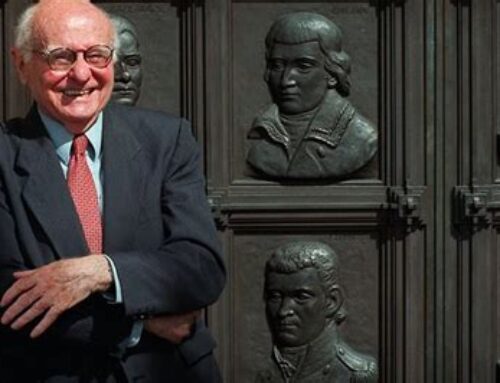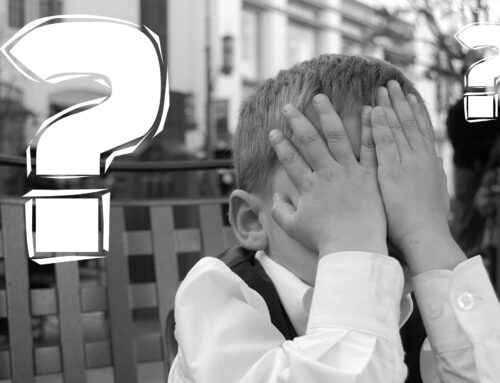Uncertainty is the reason we can’t contain new COVID variants, why lockdowns and mask mandates are less effective than expected, and why vaccines are not the hallowed ‘escape plan’ they were initially touted.
The COVID pandemic illustrates the limits of ‘classical thinking’ as the basis for sound policy. Until now, policymakers have overwhelmingly taken advice from scientists (and in particular epidemiologists) that do not consider society a dynamic, entangled state. That is to say, policymakers have taken their lead from experts whose training and professional background do not emphasise that society reflects a quantum, rather than classical system. The drawback of this situation is twofold: (1) policymakers are given unwarranted confidence in their ability to determine events; and, (2) policymakers are confronted with a litany of unintended consequences – the necessary outcome of neglecting the quantum concept: uncertainty.
The main reason policy outcomes have not met expectations is that the rules, laws, instructions and ideas on how to ‘deal’ with the COVID pandemic have been designed for a picture of reality that is a poor analogue of the one in which we actually live.
First, let me explain what I mean by a classical picture of society. Then, I’ll put forward my case for why society is, in fact, a quantum system. Once I have done this, I’ll go into some detail about the pitfalls of assuming the classical approach – and, finally, I’ll reveal how the quantum concept of uncertainty is the lynchpin – both of our current dilemma, and our possible emancipation from this seemingly endless quagmire.
The Classical Picture
The classical picture of society is founded upon two presuppositions. The first is that society is mechanical, the second is that society is (at least in principle) deterministic. Policymakers (consciously or unconsciously) assume society is like a game of billiards: you send the white ball into the red ball, the red ball will move with a momentum and direction proportionate to the force and angle with which it was struck. In other words, policymakers believe if they incentivise or disincentive a group of people through some policy, these people will move or stop according to the proportional impact this policy has upon them. Policymakers also assume (consciously or unconsciously) that if they have enough information about the present state of affairs, they are in a position to determine the consequences of their actions. In other words, with enough ‘good’ information about a group of people, policymakers believe they are in a position to adequately understand the proportional impact their policies will have. Taken together, this mechanical and deterministic – i.e., classical – picture of society gives policymakers confidence in their ability to determine events. A confidence I argue is significantly inflated.
The Quantum Society
I’ve made the argument before that society is better understood as a quantum system. But, let me try again. Society is quantum insofar as society is constituted of relations. Relations among people; between people, power and authority; between people and institutions; and, relations between people, their history, culture and environment. As Pierre Bourdieu and Loïc Wacquant stated pointedly, “what exist in the social world are relations.” In other words, society is relational.
Similarly, quantum physics – i.e., the study of phenomena at the sub atomic level – is relational. In his seminal article introducing the concept of uncertainty, Werner Heisenberg writes:
“… quantum mechanics arose exactly out of the attempt to break with all ordinary kinematic concepts and to put in their place relations between concrete and experimentally determinable numbers.”
Carlo Rovelli, who also defines quantum mechanics along these lines, explains:
“Instead of seeing the physical world as a collection of objects with definite properties, quantum theory invites us to see the physical world as a net of relations.”
The bottom line is that ‘society’ – i.e., the system policymakers purport to have an interest in and make plans for – is much more like the system that quantum physicists have an interest in, than the mechanical and deterministic billiard-ball-world that classical physicists, epidemiologists, and far too many political scientists study. Society is relational; the subatomic realm is relational. Perhaps, therefore, society is much more adequately treated with a quantum theory of politics than the prevailing classical approach. Conversely, because the classical approach is inadequate – this is my argument – its derivative policies, necessarily, generate unintended consequences.
Uncertainty
The most significant blind spot for policymakers entrenched in classical thinking is the concept of uncertainty. Uncertainty is why we can’t get a grip on new COVID variants, why lockdowns and mask mandates don’t work as well as expected, and why vaccines are not the hallowed ‘escape plan’ they were initially touted. Lest we forget policymakers had initially expected to blunt the pandemic in as little as two or three weeks! These prognoses, made all the way back in March of 2020, now seem absurd. Before I explain how these COVID dilemmas relate to uncertainty, I need to explain the concept itself.
Uncertainty is a condition to which every quantum system is subject. Uncertainty describes the limits of knowledge one can have concerning a quantum system or phenomenon. The classic Heisenberg formulation of uncertainty relations is written as:
p1q1 ~ h
Where p is the position of an electron, q its momentum, and h Planck’s constant (the quantum of action). Put simply, Heisenberg’s equation suggests the more you know about the position of the electron, the less you know about its momentum, and vice versa. There is a fundamental and necessary trade-off to quantum knowledge. Heisenberg writes:
“the more precisely the position is determined, the less precisely the momentum is known, and conversely”
The underlying reason for this uncertainty is what is known as the observer effect: the act of observation ‘disturbs’ the phenomenon under investigation such that one dimension of knowledge is obtained at the expense of another. The traditional example of observer effect in quantum mechanics is the effort to ‘observe’ the orbit of an electron around its nucleus. For our eye to register the electron, at least one photon of light must make contact with the electron under observation and travel back through the instrument to our cornea. As Heisenberg explains, “a single photon of such light is enough to eject the electron completely from its ‘path.’” In other words, the moment we ‘see’ the electron – i.e., determine its position – we have ‘disturbed’ its orbit (i.e., its momentum). Sir Arthur Eddington, who, in 1928, wrote the first book on quantum philosophy, put the situation more poetically: “It does not hurt the moon to look at it… But it is otherwise with an electron.” Whereas looking at the moon through a telescope has no influence on the moon’s orbit around the earth, looking at an electron through a microscope ‘knocks’ it off its path such that “the word “path” has no definable meaning.”
Indeterminism
Uncertainty has profound philosophical implications. Since there is a fundamental trade-off between certain dimensions of knowledge, what we might conventionally consider ‘complete knowledge’ of any quantum system becomes impossible. Heisenberg tells us:
“Even in principle we cannot know the present in all detail. For that reason everything observed is a selection from a plenitude of possibilities and a limitation on what is possible in the future.”
In other words, uncertainty forces us to give up the idea of a deterministic understanding of quantum systems. Since there is no way to gain a complete understanding of the present state of a system, we have no grounds for making concrete assumptions about its future state. Worse still, the act of gaining an understanding about the present state of a quantum system has a distinct and disturbing influence on the system’s future state. Additionally, because the act of observation disturbs the system, we are unable to ‘observe’ any causal links that may (or may not) be involved in the system. Let’s say, hypothetically, that within a quantum system, phenomenon-A was posited as the cause of phenomenon-B, to investigate this belief would necessarily destroy any evidence of a causal relation between phenomenon-A and –B, since the act of observation ‘disturbs’ the phenomenon under investigation. For this reason, Heisenberg (perhaps a little too forcefully) stated, “quantum mechanics establishes the final failure of causality.”
COVID Uncertainty
Now that we understand uncertainty and its philosophical ramifications, let’s examine uncertainty’s relevance to our present pandemic predicament. Recall that policymakers consider society a classical system: mechanical and deterministic – and implement their plans accordingly. Now, reflect on the possibility that society is not a classical, but, rather, a quantum system where the present can never be fully known and where causal links are impossible to establish. Since policymakers assume full knowledge of the present and an understanding of causation as the basis for their prescriptions, it is little wonder the last eighteen months have been a litany of unintended consequences.
Perhaps the best example of the disconnect between expectations and reality is the relationship between vaccination and the ‘return to normal.’ In April of 2020, Commissioner of the European Union, Ursula von der Leyen, assured European leaders and their publics that life will “return to normal once a coronavirus vaccine becomes widely available.” The belief at the time was that high rates of vaccination would generate sufficient antibodies in the community to provide a herd immunity that would consequently eliminate the virus. Fast forward to September 2021, and Israel – the country with the highest levels of vaccination in the world – holds the dubious honour of being the nation with highest per capita daily COVID infection rate on the planet and once more “mulls lockdowns.” Iceland too, with one of the world’s highest rates of vaccination, is seeing a troubling surge in COVID cases. The culprit undermining vaccination as the hallowed escape plan is the Delta variant of the virus. Delta emerged because COVID mutated in India and then found its way back in the countries it had travelled to India from. If anything demonstrates the degree to which society is a dynamic, quantum system – rather than a stable, classical one – it’s the way in which a virus ‘spontaneously’ mutates into a far more hazardous instantiation based upon the entanglement of international trade and travel.
Quantum Policymaking
If the COVID pandemic has revealed the limits of classical thinking, what would quantum policymaking look like?
First of all, quantum policymaking is a form of policymaking acutely aware of its own limitations. Additionally, it is policymaking that prioritises uncertainty, is humble about causal links, and accepts that most actions will, necessarily, lead to unintended consequences. In some sense, quantum policymaking is far more restrained. If not less ambitious, it is certainly less brutal. In many countries, Australia and New Zealand in particular, the policy response to COVID has been akin to trying to swat a fly with a fridge. In retrospect, of all the measures the Australian government has taken to limit the presence of COVID in the community, the most impactful (by far) was the quick decision to close the borders. In quantum parlance, the Australian government turned the country into an isolated or closed system. For a time, this approach worked. But, eventually, with enough compromise on who could come into Australia to conduct ‘business,’ the virus, and, in particular, the Delta variant found its way into the system. Once here, very little Australian policymakers have attempted has worked to stop the spread. Since strict lockdown measures were put in place in August 2021, Australia has seen the daily case rate increase every single day! Now, with the harshest lockdowns since March 2020, the daily rate (1,356 cases on 30th August 2021) is almost twice as high as it was 12 months ago when COVID measures were not nearly as strict (721 cases on 30th July 2020).
Now, I’ve heard the argument that “lockdowns work if people just followed the bl**dy rules!” But, this belies the point… (some) people don’t follow the rules. Why? Because society isn’t a classical, mechanical system. Instead, society is a quantum system comprised of relations. Relations that are entangled, dynamic, and spontaneous. It would behoove policymakers to acknowledge this fact, take uncertainty seriously, and proceed accordingly.







Leave a Reply